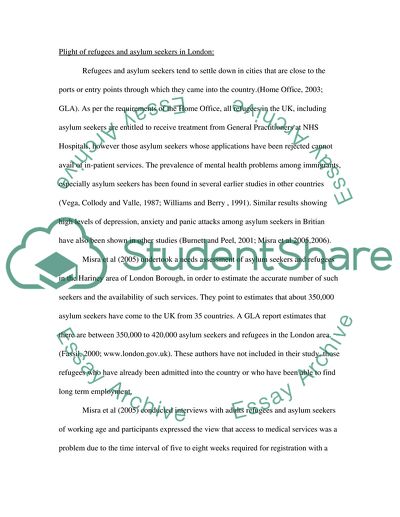Cite this document
(“Mental Illness in Refugees and Asylum Seekers Essay”, n.d.)
Mental Illness in Refugees and Asylum Seekers Essay. Retrieved from https://studentshare.org/psychology/1539311-studies-have-found-that-refugees-and-asylum-seekers-are-more-prone-to-mental-distress-and-illness-critically-discuss-the-possible-reasons-for-these-findings-a
Mental Illness in Refugees and Asylum Seekers Essay. Retrieved from https://studentshare.org/psychology/1539311-studies-have-found-that-refugees-and-asylum-seekers-are-more-prone-to-mental-distress-and-illness-critically-discuss-the-possible-reasons-for-these-findings-a
(Mental Illness in Refugees and Asylum Seekers Essay)
Mental Illness in Refugees and Asylum Seekers Essay. https://studentshare.org/psychology/1539311-studies-have-found-that-refugees-and-asylum-seekers-are-more-prone-to-mental-distress-and-illness-critically-discuss-the-possible-reasons-for-these-findings-a.
Mental Illness in Refugees and Asylum Seekers Essay. https://studentshare.org/psychology/1539311-studies-have-found-that-refugees-and-asylum-seekers-are-more-prone-to-mental-distress-and-illness-critically-discuss-the-possible-reasons-for-these-findings-a.
“Mental Illness in Refugees and Asylum Seekers Essay”, n.d. https://studentshare.org/psychology/1539311-studies-have-found-that-refugees-and-asylum-seekers-are-more-prone-to-mental-distress-and-illness-critically-discuss-the-possible-reasons-for-these-findings-a.


